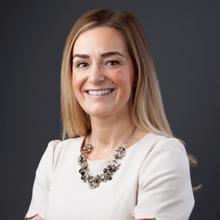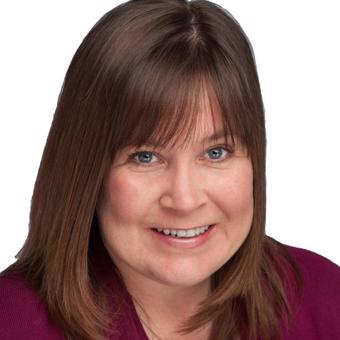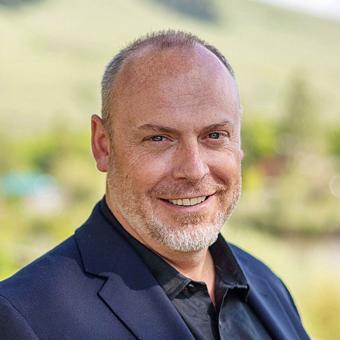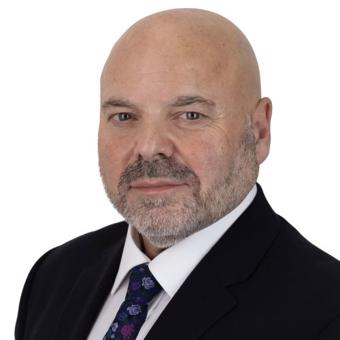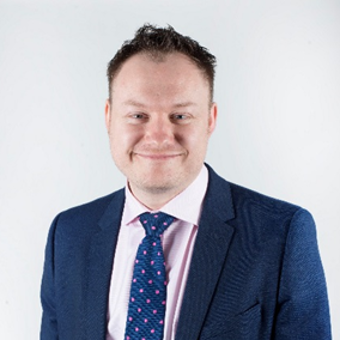Danielle Ayres, Partner in the Employment Team at the North West commercial firm Primas Law, talks to The Brief about her specialism in pregnancy and maternity-related discrimination cases, setting up Pregnant and Protected and how the issue remains prevalent despite the post-pandemic shift to flexible working.
Earlier this year Danielle Ayres, Employment Partner at Primas Law, shared a day in her working life with The Brief. In that article she touched on her work running the legal advice line for the charity Pregnant Then Screwed, and her broader specialism in maternity and pregnancy-related discrimination matters.
These are issues that prevail not just in society at large but also, sadly, in areas of the legal profession, so we caught up with her again to find out more about how she developed her specialism, the matters involved, her work combatting them, and what warning signs women who are considering having children might be able to look out for when considering moving to a new workplace.
In at the deep end
Ayres didn’t initially intend to be a lawyer at all, let alone an employment specialist. While at school she planned to study dentistry but, having achieved disappointing results in her science A Levels, was offered a place through clearing to study law at the University of Central Lancashire instead.
After a year out following her degree, she went on to take her LPC before embarking on a training contract at the Manchester office of GLP Solicitors.
I just got thrown into the employment department, on my own, with the managing partner overseeing everything that I was doing.
Up to this point she had been set on specialising in family law, and had not taken any employment-related modules at university. However, the firm’s employment specialist had left just before the beginning of her training contract: “So I just got thrown into the employment department, on my own, with the managing partner overseeing everything that I was doing.”
Although she carried out all the different seats required to complete her training contract, she did these in tandem with employment work. This included attending tribunals on a regular (if not weekly) basis, helping draft contracts and employee handbooks, running Tribunal proceedings, drafting grievances and sitting in with the managing partner while he advised on settlement agreements.
“So, when I came to get another job, I knew that I wanted to do employment,” she says. “And going into interviews up against other NQs, I could quite easily answer questions or give examples of matters that I had dealt with and issues that might crop up, so it wasn’t too difficult for me to find a job.”
Developing her specialism
Upon qualification she took a job at the Stockport firm Gorvins, carrying out both employer and employee work.
Initially an employment generalist, Ayres’ interest in her specialist area began when she was on maternity leave with her youngest child, and other mothers at baby groups started to ask her, as an employment lawyer, for advice.
Then, after returning from her second period of maternity leave and finding “the team had grown and there wasn’t a lot of work left for me to do”, it was suggested that she focus on a specialist niche. Based on her newly developed interest in the area, she chose pregnancy and maternity-related matters.
Pregnant Then Screwed
Just after returning to work following her second maternity leave, Ayres met Joeli Brearley, the founder of Pregnant Then Screwed, who told her she was planning to establish an advice line and Ayres asked if she could help out, which she did, carrying out the work in tandem with her day job.
At first she handled all the work-related queries received by this helpline, on a pro-bono basis. As Pregnant Then Screwed grew, however, it took on a bank of volunteer HR advisers, and Ayres now focuses purely on employment enquiries that go beyond those capabilities.
Pregnant and Protected – legal advice and legal action
Primas, the firm Ayres joined as a partner in December 2021, has also just launched its own helpline, “Pregnant and Protected”. This complements the work Ayres does for Pregnant Then Screwed and promotes a legal helpline via which individuals are offered an hour’s free advice (which does not all have to be taken in one go).
Ayres says, “The Pregnant and Protected website boasts a wealth of information on common topics in this area, and also lends itself to in-house training for businesses who are looking to educate their management teams and/or HR on how to handle those issues, such as flexible working requests, and rights during maternity leave.”
After their hour’s worth of free advice, individuals might be pointed toward their local Citizens Advice Bureau or, if they need to commence legal action, Legal Aid could still be available in some cases. Alternatively, if the individuals have home contents insurance with additional legal cover, they might be able to fund a tribunal claim using that, either instructing one of insurer’s panel solicitors or, potentially, Primas.
The number of calls we have seen hasn’t decreased – if anything it’s still on the increase, which is crazy in this day and age.
In the ten-plus years Ayres has been doing this work, the issues have remained consistent – with redundancy during, or immediately following, maternity leave being the most prevalent serious matter.
Ayres acknowledges that, post-pandemic, and thanks in part to the campaigning work of Pregnant Then Screwed, more and more employers now offer flexible working and understand the importance of treating women and men equally.
Theoretically, this should have fed through into fewer cases. However, Ayres says, “The number of calls we have seen hasn’t decreased – if anything it’s still on the increase, which is crazy in this day and age.”
As well as running Pregnant and Protected and the volunteer work she does for Pregnant Then Screwed, Ayres is highly active on Instagram and LinkedIn, as well as face-to-face networking, all of which generates a large proportion of her work.
Legal sector not immune
Through Pregnant and Protected, Ayres hopes to change not just individual outcomes but the wider culture around pregnancy and work. By educating both employees and employers, she says, the service aims to prevent discrimination before it happens and set a new standard for workplace rights.
It is quite a male dominated industry at the top, and we do find an awful lot of problems with progression for women.
Ayres deals with pregnancy and maternity-related discrimination cases involving people “from all walks of life and every industry sector”, she says. “And, unfortunately, solicitors’ firms are still one of those.
“We get a fair few enquiries from solicitors. I think our industry really wasn’t set up for home working so, when the pandemic hit, it shook the legal sector to the core.
“The way we had to adapt did great things for us in terms of potentially providing the flexibility that expectant, new and returning mothers need, but we’re still governed by the old guard, especially in the bigger firms.
“It is quite a male dominated industry at the top, and we do find an awful lot of problems with progression for women.”
Red flags
So, what kind of red flags can lawyers who might be considering starting a family look out for when moving to a new employer?
A lack of flexible working or family-friendly policies would obviously set alarm bells ringing.
Ayres says good employers should also be open to allowing candidates to speak to existing employees in similar roles. “Ask them how they find their job and the way in which they are asked to work – the positive and negative,” she advises.
“This will help you to see if people are happy, if the firm fulfils its promises, the hours that are expected and where the employees work from.”
Visit
Connect with Danielle Ayres via LinkedIn
